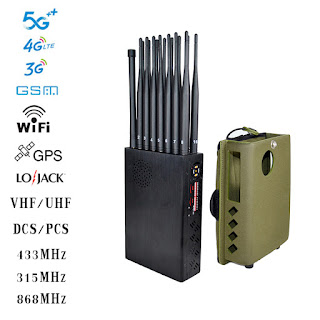Program by the government that provides excess military equipment to law enforcement agencies
In 2011, the Payson Police Department mistakenly assumed they were acquiring a cell phone jammers from a government program that provides surplus military equipment to law enforcement agencies. Instead, they were given a smokescreen device from a U.S. Navy ship.
“The ‘Electronic Countermeasures’ were supposed to be cell phone jamming devices. However, what was sent were smoke machines off of a naval ship,” Chief of Police Ronald Tischer said in an email to Arizona Mirror. “So, we are in the process of sending them back. They were never used and have been in storage since 2011.”
The Mirror reached out to the Payson Police Department after analyzing data published by the Defense Logistics Agency about military equipment sent to local law enforcement agencies across the country. The department obtained two items listed as “electronic countermeasures” in 2011 both valued at roughly $4,800.
Company offering cell, drone and other jammers is fined $35 million
The Federal Communications Commission's penalty forfeiture order of $34.9 million against Chinese electronics manufacturer and online retailer C.T.S. Technology for marketing and selling signal jamming devices to American consumers was announced yesterday, with the acknowledgment that the fine may not be fully recouped.
Radio frequency transmitters, commonly referred to as "jammers," are deliberately used to impede, disrupt, or interfere with wireless communications, encompassing cell phone calls, GPS systems, Wi-Fi networks, and emergency communications.
C.T.S. Technology has been issued a proposed fine of $34,912,500 by the FCC's Enforcement Bureau following an investigation. This penalty is a consequence of the company's marketing of 285 jammer models within the United States.
In order to comply with federal law, the company was directed by the FCC to ensure that its marketing activities are in line with regulations. Although the company did not respond to the proposed fine, which is officially referred to as a "Notice of Apparent Liability," it has since implemented various measures to ensure its marketing practices align with U.S. laws that prohibit the marketing, sale, and importation of signal jammers.
Because C.T.S. Technology did not provide any evidence to contradict the findings of the proposed fine, the Commission's decision yesterday, which was a formal forfeiture order, upheld the full proposed fine against the company.
But collecting that money may be difficult.
As per international law, the FCC contacted the Chinese government to issue the NAL because C.T.S. did not acknowledge its receipt.
In spite of the agency's request, China's designated service affairs agency opted to ignore it and deemed a forfeiture filing to be the appropriate measure.
Payment is required from C.T.S. within 30 days. The FCC has not detailed any repercussions for non-payment at this time.



Comments
Post a Comment